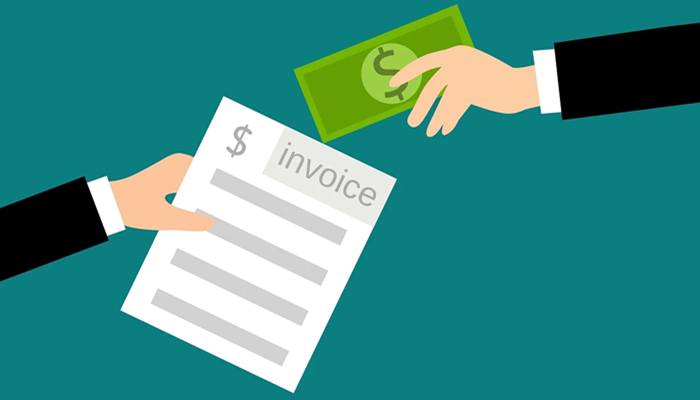In freight and logistics, the biggest concern for most companies is a steady cash flow. This situation worsens when customers are late to make payments. Resultantly many trucking companies are forced to look for external funds to stay operational. For a number of companies in this sector, freight factoring has been able to address this problem. By selling invoices to a factoring firm, companies can receive cash right away and avoid the wait caused by the payment cycle. This article addresses freight factoring.
What Is Freight Factoring and How Does It Work?
Trucking factoring, also referred to as freight factoring, is a financial technique whereby the client conveys his/her accounts receivables (bills) to a third-party firm (the factoring firm) for a small amount of cash. This makes it easy for the business to be paid by its bank immediately, hence avoiding exploitation by waiting customers. The process:
- Service Delivery: The burden of submitting an invoice and following through is on the trucking company after it has delivered consignment for a client.
- Selling the Invoice: Unlike other contracts where the client pays the trucking company, the invoice is sold to the factoring company.
- Advance Payment: The factoring company gives the trucking company an advance, normally an amount ranging from 70-90% of the value of the invoice.
- Collection: The factoring company takes the payment from the client right where the invoice is being due.
- Final Payment: The client makes payment in full to factor in if it has not been paid concurrently. The factoring company pays the balance to the trucking company after deducting their commission.
Benefits of Freight Factoring for Trucking and Logistics Companies
The benefits of freight factoring are numerous, especially in the transportation and logistics industry. Here are the most considerable advantages:
1. Immediate Access to Cash Flow
Access to cash is important in any enterprise, especially freight and logistics companies. This, in turn, removes the business’s pressure to wait for a period of thirty to ninety days for customers to pay them back through factoring. This is very useful for companies that expect to incur easy expenses such as fuel costs, maintenance, staff salaries, and other recurring expenses.
2. No Debt Involved
This would differ from traditional loans or lines of credit because, in freight factoring, there is no addition to the debt. A business company is just selling its receivables to a factoring company and will not have to repay any loan amount with interest accrued. Factoring, therefore, becomes non-debt, leaving a company’s balance sheet free.
3. Better Access to Credit
Factoring of freight does not have a similar impact on the credit rating as does a loan, whether secured or unsecured. However, it is important to note that most small businesses use factoring to solve their cash flow problem in a way that can even enhance the credit status because it ensures regular payment to the suppliers or vendors. Besides, it shows that through factoring, businesses can keep a good line of credit for other purposes, such as purchasing equipment or expanding the company.
4. Flexible Financing
Freight factoring is an adjustable option in which companies may selectively factor their invoices. This flexibility entails that factoring could be made for just a single invoice or made in repeated manners. The more invoices any company is able to issue, the more capital they are able to access, and therefore, it facilitates easy up-scaling or down-scaling depending on the demand in the market.
Cost of Freight Factoring: What to Expect
While freight factoring can give one much-needed liquidity, the service comes with its own cost. The cost will, no doubt, depend on a variety of things: the size of invoices, the volume of factoring, and, above all, the policies of the factoring company.
Discount Rates and Fees
Most factoring companies charge a fee, normally in the range of 1% to 5% of the total invoice amount, but this depends on the agreement terms. The discount rate is higher for small firms or those who factor in fewer invoices.
Extra Fees
Some factoring companies may also charge additional fees for services like credit checks, collections, or wire transfers. It’s important to clarify all potential fees upfront to ensure transparency in the financial arrangement.
Long-Term Use of Factoring
For companies reliant on factoring, the costs can pile up over time. The immediate access to capital may be worth the cost in the short term, especially when cash flow problems strike. They should check the long-term costs and see if it is worth sustaining the operation.
How to Choose the Right Freight Factoring Company
This would be selecting a factoring company that represents the best interest of your business. Consider the following when evaluating various freight factoring providers for your transportation business:
1. Reputation and Reviews
Consider a factoring company that has gained a good reputation in this field. The reviews about a certain company, along with references, help in ensuring trustworthiness when selecting such service providers.
2. Fees and Terms
Carefully read through the fees and terms presented in the factoring agreement. Understand what discount rates, additional charges, and hidden costs are associated with the contract.
3. Flexibility and Support
Find a factoring company that offers flexibility regarding contract duration and volume of invoices. A good provider will offer customer support to help resolve problems or questions about your account.
4. Industry Experience
An experienced freight factoring company will know what a trucking and freight business specifically needs. Find one that is in the freight factoring business and has good credentials in the industry.
Wrapping Up
Freight factoring is a strong tool a trucking and logistics company can put into practice. With factoring, they offer immediate access to cash, remove debt burdens, and even provide flexible financing. With all this at their discretion, companies can easily run operations and grow their core businesses. Be it small carriers or big logistics. Freight factoring offers some workable solutions to counter the challenges related to cash flow.
































